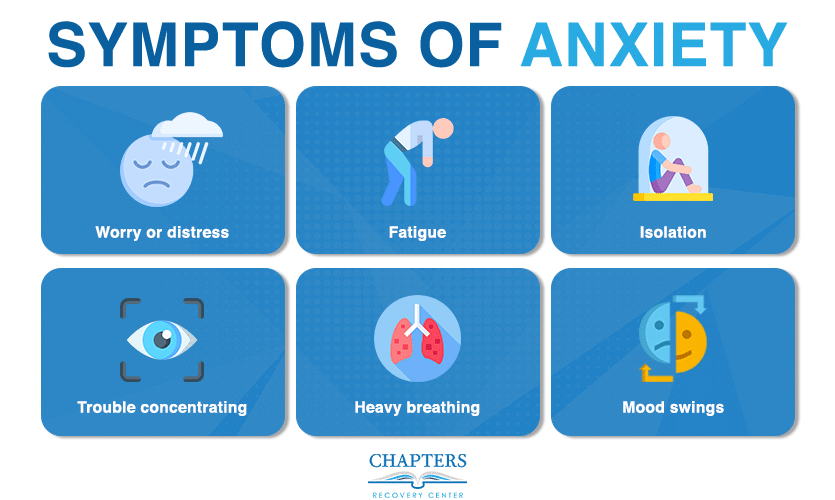You have likely heard of the drug ketamine before. Whether as a prescription medication associated with veterinary medicine or, more recently, as a medical intervention for mental health disorders. While ketamine has many practical uses, this drug is no exception to drug abuse and the associated dangers such as ketamine overdose.
Unfortunately, ketamine’s abuse potential has seen an uptrend in recent years. Despite its intended purpose, many people have begun to use it recreationally. This is no secret and the drug—and the dangers associated with its abuse—has shown up in many popular forms of media, including HBO’s television show, Succession.
What is Ketamine, Exactly?
Ketamine is a dissociative anesthetic. This means that it provides anesthesia (pain relief) while also causing a dissociative state (a sense of disconnection from reality). It is available in both intravenous and intramuscular forms and, when used correctly, ketamine can be a safe and effective medication.
The drug was developed in 1962 to be used during surgery as a rapid-acting anesthetic. By 1970, it gained approval from the Food and Drug Administration (FDA) and was marketed for human and animal use. When used medically, the drug is injected into the body where it produces effects that detach an individual from their environment and pain.
In recent years, ketamine has been used as a new type of medication therapy for people with mental health conditions such as depression and anxiety. In small doses, ketamine is shown to improve symptoms of these conditions within minutes. The effects of this medication on the mood of a patient treated with it have seen improvements that last for a long time. Unfortunately, this drug does come with the potential to be abused.
Ketamine and its Abuse Risk
While this drug is hailed as an anesthetic and sedative, ketamine does have abuse potential. In fact, ketamine is a Schedule III drug in the U.S. This means that it has a currently accepted medical use but also a high potential for abuse which can lead to severe psychological or physical dependence. On the street, ketamine is known by many names, including:
- Cat Tranquilizer
- Cat Valium
- Jet K
- Kit Kat
- Purple
- Special K
- Special La Coke
- Super Acid
- Super K
- Vitamin K
- Calvin Klein (when mixed with cocaine)
When ketamine is abused, it is often done so by snorting the powder form of the drug or dissolving it in water and injecting it. Ketamine produces dissociative effects when abused which are described as out-of-body experiences or hallucinations. The effects of ketamine last for approximately an hour when abused.
The effects of ketamine have caused the drug to gain popularity within party and club scenes. People who abuse ketamine generally do so for the psychedelic or hallucinogenic euphoria that the drug causes. This drug is not as widely abused as other illicit or legal (yet misused) drugs. However, the consequences of ketamine abuse—which include ketamine overdose—are highly dangerous.
The Long and Short-Term Effects of Ketamine Abuse
As an anesthetic, ketamine is given intravenously to patients. When abused, ketamine is often snorted or taken in tablet form. There are serious consequences that may occur when using this drug outside of a medical setting. Therefore, abusing ketamine can result in serious short-term and long-term effects on users’ health. Short-term ketamine abuse effects include:
- Elevated blood pressure
- Nightmares
- Insomnia
- Depression and anxiety
- Paranoia
- Increased heart rate
- Agitation
- Delirium
- Hallucinations
- Dissociation from reality (feeling disconnected from one’s body)
- Numbness
- Impaired motor function
Even though ketamine is not considered an addictive drug, some users develop a tolerance to ketamine’s effects and require larger doses of the drug to experience the desired effect. Some ketamine users also develop cravings for the drug. This can lead to long-term abuse of the drug and the onset of associated side effects as the user develops a drug addiction that requires treatment. Concerningly, long-term ketamine abuse can cause:
- Urinary tract damage, including ulcerative cystitis (bladder inflammation or infection) and kidney damage
- Cognitive difficulties, such as memory loss
- Psychotic symptoms,
- PTSD
- Flashbacks
- Severe abdominal pain
- Persistent perceptual changes
The potency of ketamine determines the effects a person will feel. One of the most concerning effects that can happen immediately is referred to as entering a “K-hole.” This is an out-of-body, near-death experience. Some people refer to this as a type of ego death where the user is disconnected from their body in a way that mimics death. Unfortunately, this can cause severe emotional distress in the user.
Is a Ketamine Overdose Possible?
In short, yes, ketamine use can result in an overdose, which can lead to death. Ketamine overdoses are typically characterized by slow and shallow breathing, low blood pressure, seizures, and coma. This has been seen in individuals who abuse a large amount of ketamine. However, it can be difficult to know how little of a drug is needed to induce a ketamine overdose in a person.
Ketamine overdoses can be particularly dangerous because the drug can cause a person to stop breathing entirely. Ketamine use can also result in sudden death for some users. Several signs may indicate someone is experiencing a ketamine overdose:
- Shallow or slow breathing
- Seizures
- Coma
- Loss of consciousness
- Low blood pressure
- Dilated pupils
- Involuntary muscle twitching
- Slurred speech
- Hyperthermia (overheating)
- Dizziness
- Stumbling as if drunk
- Nausea and vomiting
If you believe someone is overdosing on ketamine, it is important to seek medical help immediately. Unfortunately, ketamine overdoses are becoming more and more common as the drug becomes more widely available. Therefore, it is important to know the signs of a ketamine overdose so that medical attention can be given to the person experiencing ketamine overdose as soon as possible.
How Ketamine Interacts with Other Drugs
One of the main concerns with substance abuse is the mixing of different substances. Unfortunately, when ketamine is abused, it is often combined with other drugs. This is because ketamine is used as a party drug and can be found in clubs or party settings.
Alcohol and ketamine are a particularly dangerous combination. These two substances, when combined, can lead to vomiting and an increased risk of overdose. Ketamine and weed can also be a risky combination. Cocaine and ketamine are another dangerous mixture that can lead to serious health consequences.
Additionally, ketamine may interact with different prescription medications. These include antidepressants, anti-anxiety medications, and painkillers. Interactions with heart medications such as ticlopidine and antibiotics such as rifampin have also been reported. Overall, it’s important to speak with a doctor before mixing ketamine with any other substance.
Ketamine’s Effect on the Human Brain
You may have noticed that many of the short and long-term effects of ketamine have to do with the cognitive processes and the brain. Studies have shown that ketamine affects short-term memory and visual recall. It can also cause psychotic symptoms, such as delusions and hallucinations. This is because ketamine has an intense impact on the human brain. Ketamine works by binding to the PCP site of the NMDA receptor. This prevents the receptor from working properly, which in turn leads to the dissociative effects that ketamine is known for.
Ketamine is classified as a dissociative anesthetic, which means that it causes anesthesia (or numbness) and dissociation (or detachment). In other words, ketamine numbs the body while also causing users to feel detached from their surroundings and themselves. Startlingly, dissociative drugs like ketamine are often used as date rape drugs because they cause memory loss and make it difficult for victims to remember what happened to them while they were under the influence.
Ketamine’s Effect on the Human Body
Additionally, ketamine can cause serious damage to the human body. Individuals who engage in the regular consumption of ketamine may experience damage to internal organs. This includes the lungs, heart, and kidneys.
Damage to the kidneys and cardiovascular function are both linked to the high blood pressure that ketamine causes. As ketamine inhibits the body’s ability to regulate blood pressure, ketamine users are at an increased risk of suffering from cardiovascular problems and kidney damage.
Further, ketamine can harm the bladder. Ketamine users may experience urinary incontinence, urinary tract infections, and blood in their urine. Pain and ulcers in the bladder have also been seen in individuals who abuse ketamine. This is highly concerning as it can lead to long-term medical problems that require medical care.
Recover with Chapters Recovery Center Today
At Chapters Recovery Center, we’re committed to helping our patients begin the next chapter of their lives. We’ve tailored each of our programs to the needs of our clients, ensuring their long-term recovery. We offer a range of treatment options, including:
- Partial hospitalization program
- Intensive outpatient programs
- Outpatient programs
- Dual diagnosis treatment
If you are struggling with a ketamine addiction and fear that you may experience ketamine overdose due to your substance abuse, we can help. Contact us at Chapters Recovery to start the journey to sobriety.
References
https://www.dea.gov/sites/default/files/2020-06/Ketamine-2020.pdf








